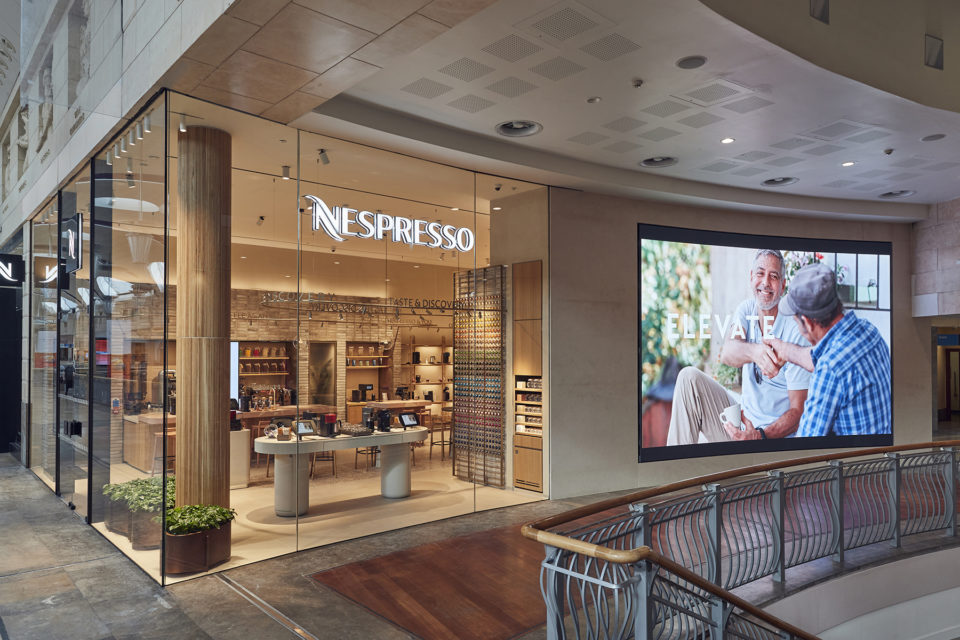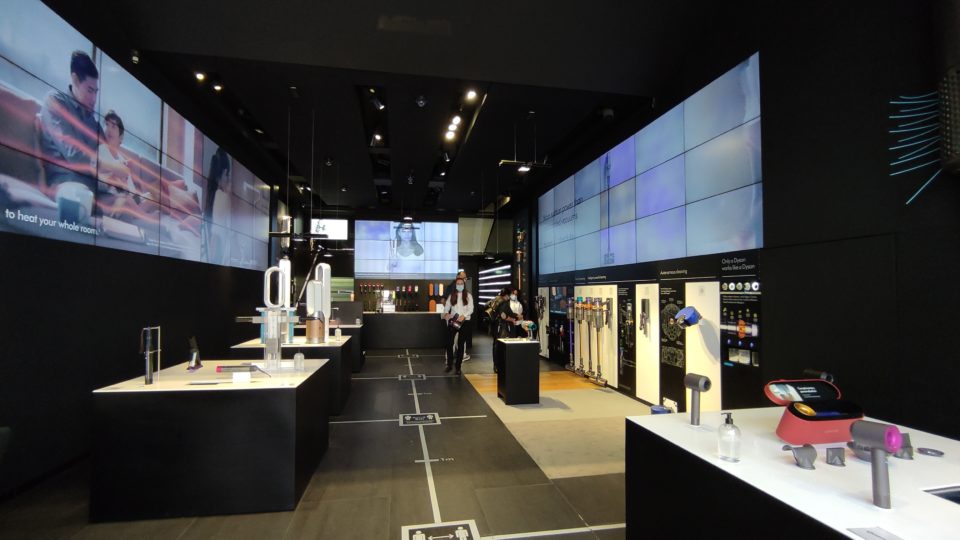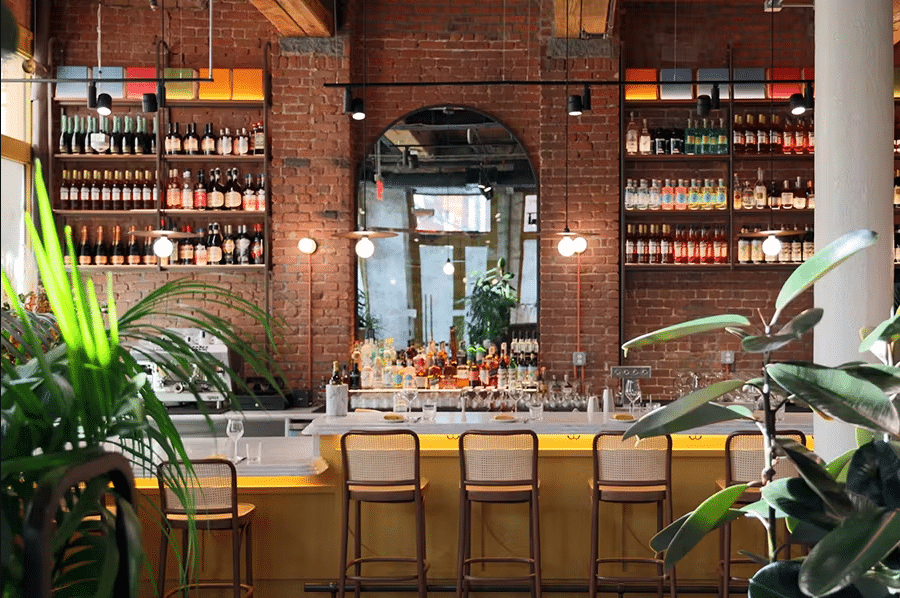Trendsetters: Future of Retail – Emma Jones of PopUp Britain
On Monday 18th March, Insider Trends brought 250 people together for its ‘Trendsetters: Future of Retail’ event at the British Library in London. 4 trendsetters presented their projects and predictions.
Emma Jones, Founder of Enterprise Nation and Co-Founder of PopUp Britain, spoke about PopUp Britain’s work, positive effects and achievements.
You can watch the whole presentation using the video above or use the edited transcript below to skip to the insights that you need.
If you have any questions or thoughts, do share them with us in the comments.
Emma’s transcript:
I was in this very space last week listening to Professor Noam Chomsky being interviewed by Jonathan Freeland. They spoke about everything from the Middle East to propaganda – big issues around world affairs. One of the things he said made me smile: “The internet hasn’t really been a big thing. It hasn’t changed that much.” I thought how interested he would be to hear us talk about these developments, which wouldn’t have happened without the World Wide Web. Hopefully he’d be smiling and maybe question his own thoughts a little bit.
For those of you who haven’t come across PopUp Britain – a campaign called StartUp Britain was launched by the prime minister on the 28th March 2011. However, we do not take any government money. It’s fully private-sector funded. It’s all about helping people start businesses. We do things like go out on a national bus tour every year – this year we’re going to be on the road from mid-May to June. We’re running a week-long series of events called Finance for StartUp Britain Week – free events about how to raise money for your business and how to attract an angel investors. We do startup days, such as Startup Fashion and StartUp Food. Our Head of Media does everything in her power to encourage the media to give a more proactive, encouraging and positive attitude so people take their ideas, hobbies, passions and skills and turn them into a business.
StartUp Britain was hearing from a lot of small businesses that were based online and at home. They were saying they’d love to have a high-street experience and get their products to the high street and to customers. At the same time we were hearing from the other side that there were 15% vacancy rates on high streets.
The chairman of Startup Britain, Luke Johnson, is very much a property man. He used to own Pizza Express and Giraffe and he currently owns Patisserie Valerie, Strada, etc – he has a lot of knowledge about the high street. So we asked him what we could do.
We did a survey that said 82% of small businesses want to go on the high street, but what was holding them back was the amount of money it would cost and signing a long lease. On the other hand, we had these empty shops. We decided to match the two by opening up empty shops and filling them with small businesses.

Emma Jones, co-founder of StartUp Britain, cutting the ribbon of the first PopUp Britain store with Eric Pickles and Mark Prisk
Our first shop opened in Richmond in July 2012. It was right opposite Richmond Station at 2 Kew Road. Our branding has changed since, but it was very British: red, white and blue. We’ve modernised it since then.
PopUp Britain’s approach is to fill a large shop with six small businesses who trade at the same time. Each of those businesses pays £150 to trade for two weeks, which is affordable for most small business budgets. We wanted to crowd-fund the rent.

The Richmond store
When we first opened the Richmond shop, the landlord let us have it for three months because it had been empty for four years. The new landlord was looking to get planning permission so he wanted to befriend the local authority. But also, he wanted some rent coming in, a contribution to business rates and for his insurance premium to go down. So by filling the shop with activity, we brought his insurance premium down and were able to give him a contribution to rent. He benefited and our business did as well.
We had a fantastic launch at the PayPal offices in Richmond.
For the first two weeks we had somebody from PopUp Britain sit in the shop every day with our tenants. What emerged was that our tenants would look to PopUp Britain and say, “What are you going to do for me today to bring in customers to this shop?” We thought, this model won’t work because as we expand out across the UK and have shops across the high streets, we do not have the people to resource all of these shops.
We decided to move out and let the tenants take over and do their thing. So now we have crowd-funding and crowd-resourcing. We handed over the key to six people who’d never met and said, “Go trade.” One tenant said, “I want the music on.” Another said, “I don’t want music on.” So we left, and fortunately we had no fights.

Seven months on, we’ve helped over 130 businesses get onto the high street. We’ve now got a shop in Victoria and our next set of six tenants have come together for meetings. They’ve planned an event they’re going to run when they get into the shop. It’s brilliant that they are meeting each other beforehand and collaborating on ideas. One of the things we think is so valuable is that the brands have to come up with ideas on how to market that shop and attract customers.
One of my favourite moments of Richmond was when one of our tenants, a business called Bikini Fling, had a bikini fashion show. It was an incredible event and attracted customers in. Another business sold boxer shorts, so they had people handing our flyers in their boxer shorts in the freezing cold at Richmond Station. Our tenants came up with a whole load of activities.
We moved out six months later and we now have people from Richmond saying, “We really miss PopUp Britain.” Because every two weeks they’d go by the shop to see who the next six tenants were. They were waiting for the next bikini party and looking for the guys with the boxer shorts. So it brought variety into Richmond and attracted more footfall to the high street. It also benefited the tenants, as all of them have made sales.
Zac Goldsmith, the MP for Richmond, was very supportive and Richmond Council, on the back of PopUp Britain, have now introduced a popup grant to help other businesses do it. They saw the benefits of letting us in.
ElephantBranded, a lovely young social enterprise business, were in the shop in Richmond in the early days. They were talking to John Lewis about having their bags stocked. A buyer came in because they wanted to see how the product sold in a retail environment, and sure enough ElephantBranded then got a contract. The founder attributes part of that to being in a shop. So it’s a benefit we’d never even though of – buyers are coming in to see how you perform personally but more importantly to see how your product sells and looks in a retail environment.
Maria Allen Jewellery was in the shop with a business called Tier One Clothing, who make fantastic shirts. They’ve now got a joint venture where she makes cufflinks for their shirts. So we’ve also seen joint ventures form. We also have a luxury fashion fortnight and six businesses who met in the shop are still getting together.
Bertie & Jack made great sales, but they’ve won a marketing agency for a year as part of StartUp Britain. All our tenants have benefited either from sales, increasing online traffic, or having joint ventures with other tenants.
One of the models we’re testing is having a permanent tenant and five others who come in on a fortnightly basis.
Another benefit is that our popup tenants get immediate customer feedback. They’re used to trading online from home – having customers coming in to touch and feel their product brings new insights. We’ve had tenants who’ve change the price of their product based on customer feedback. One tenant at Victoria said her online site traffic had increased by 300% for the two weeks she was in the shop.
All our tenants use social media to promote their shop. One of our best sellers makes shoes for ladies with big feet, so a brilliant niche market that sells all over the world. She tweeted and put it on Facebook that she was going to be in a shop in Richmond and that increased footfall as people came from outside of the UK to meet her. So the social media benefited her, but there were five other businesses that also benefited when she brought extra traffic in.

Finally, we’ve had a lot of people who’ve said, “popups are fine, but the whole thing about a popup is it pops up and then it goes.” But 12% of our tenants are now looking for permanent space on the high street. One of our Richmond tenants, who sells beautiful men’s fashion, did so well there that he’s now looking for a permanent shop. So a popup can test new markets.
In view of us expanding, one of our visions is to enable small businesses to do popup hops where you go in and test new markets on a low-cost, low-risk basis. We wanted to test in Richmond and get the model right for the three months. Then we had a popup in Somerset House.
In October 2012, Mark Prisk, the minister for local growth and regeneration, called us into the Department for Community and Local Government (DCLG). He told us he loved the idea of popups bringing high streets to life and wanted us to set up a popup showcase in the building. Lorna Rowe, an executive at DCLG has helped us in this process. We took what was an office space – over six weeks, with planning permission, we converted it into a shop, which opened on the 17th of December. This has enabled us to present to MPs and town teams to show them what they can have in their towns and what the benefits are.
On the same day, we launched a national popup lease. It is a two-page document that tenants can hand to landlords and it shows them they don’t have to incur massive legal fees. So it’s a great benefit that enables small businesses to open shops. We also produced a kit for town teams who want to open shops.
So our vision is to have popup shops everywhere. We’re about to announce seven new ones. We’re trying to do a deal to get a popup shop on the King’s Road. PopUp Britain has been criticised for the fact that we have been in Richmond, Victoria, Somerset House, Moreton-in-Marsh. People have said we only go to very affluent areas and they ask why we don’t go to streets where there are lots of closed-down shops. Our response is that our job at PopUp Britain is to help small businesses get on the high street. Small businesses want to make sales, meet customers and test new markets. We cannot put them in shops that don’t have very high footfall because if we do that, we’re doing a disservice to the small businesses that we’re looking to help. We have been offered space on the King’s Road that will fit 12 tenants in at one time. We’ll help hundreds of small businesses to have a retail experience and make more sales. That’s our job. Hopefully the King’s Road will be announced soon with others to follow.
In terms of what’s next: payment is massively exciting for the future. O2 have sponsored this event tonight – they’re making it possible for businesses to take payment via smartphones. It’s unleashed great opportunities for our tenants because when we first opened, people would have to go to the cashpoint to pay, meaning we were losing customers. Now with products from the likes of O2, you can accept payment via your smartphone and keep customers in the shop.
Small businesses will be able to take payment, not just in popups, but at trade shows, at farmer’s markets and on the move.
Also regarding promotion, we are working with Intel on a very exciting thing called Audience Impression Metrics. This is an immersive technology. It evaluates who you are and what age you are and what offers might be interesting to you. We are looking to showcase leading-edge technology in our popups – things like brands promoting themselves via local apps and also using Audience Impression Metric Systems.
Finally, I see a massive opportunity for small businesses to form partnerships with large companies such as Intel and Intuit, another business we work with. We’ve also agreed with moo.com to do something called Pickup at Your PopUp. They make beautiful business cards – they’re a big business looking to get their product out to their customers. We have a chain of popup shops where we want to bring in customers, so we are going to make an arrangement with them to have them deliver to the shop.
We’re looking for partnerships with big companies who have got technology or access to customers, as well as partnerships with town teams. These are local authorities who are keen to see their high streets regenerated. So partnerships between small business, large corporate and the local authority is key to bringing high streets back to life, but also in making sure that small businesses contribute to a vibrant economy.
In summary, I see the future of retail as popups in terms of a way of helping small businesses get onto the high street, and as a by-product of that, bringing more high streets to life.




